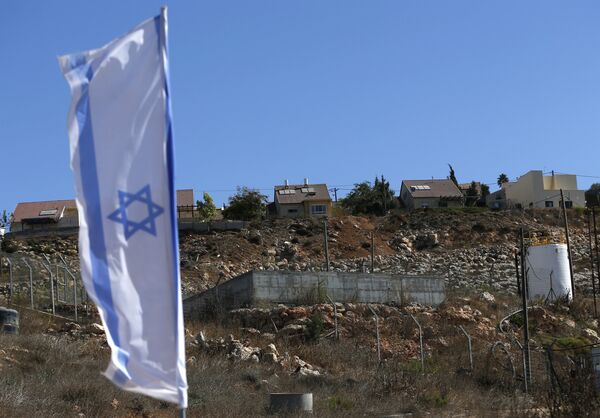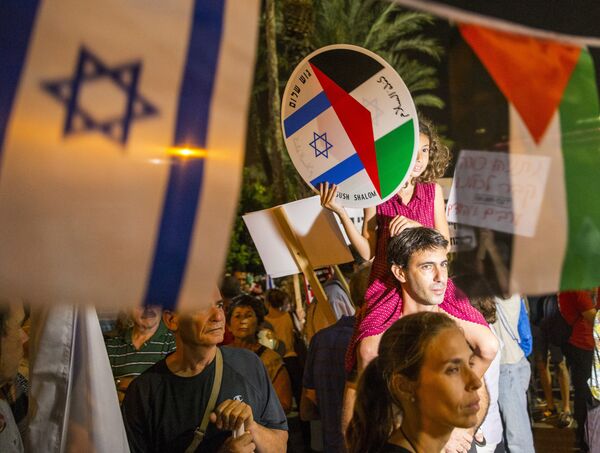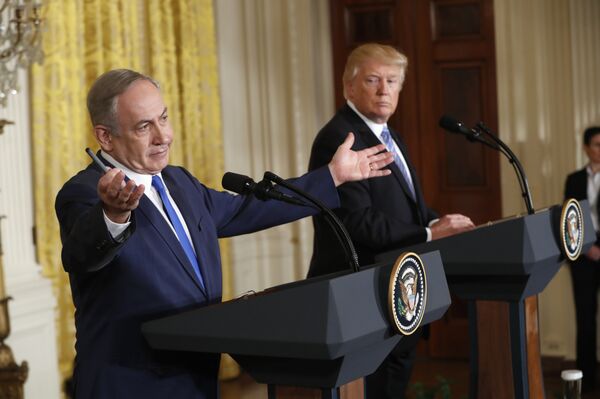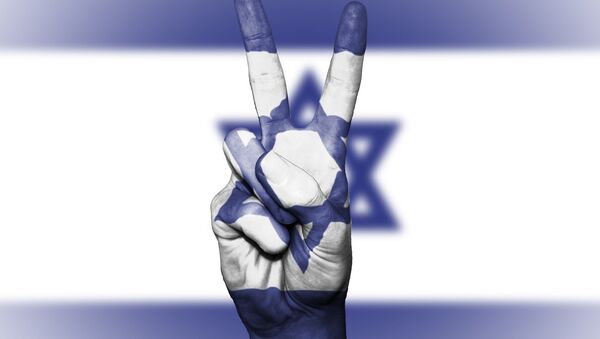The offer comes just a week before Donald Trump is due to make his first series of overseas visits as commander in chief. The first stops on his tour will be Saudi Arabia and Israel.
The Wall Street Journal has reported that various Gulf States are prepared to set up "telecommunication lines" between their states and Israel, enter into new trade negotiations and allow Israeli planes to fly over their airspace.
The quid pro quo, is that Israel would have to immediately cease its illegal annexation of Palestinian land and settlement expansion in "certain areas" of the West Bank, as well as lift the stringent trade and security blockade in place on the besieged Gaza Strip coastal enclave.

Israel maintains a blockade on the Gaza Strip with the stated aim of preventing Hamas from importing weaponry from state patrons, namely the Islamic Republic of Iran.
There are other incentives being dangled in front of Israel by the Gulf States, such as the issuing of visas to Israeli sports teams and trade delegations for events in Arab states. It is believe these measures will help not only to normalize Israel's relations with its Arab neighbors, but also to culturally and diplomatically integrate Israel as part of the Middle East.
In has been reported that while the Arab officials are in no way deluded about the implausibility of achieving peace between Israel and Palestine any time soon, they do believe that such incentives will reward Israel for taking steps toward that desired goal.

During his Middle East tour that will take place over the next 10 days, President Trump is expected to offer his vision for peace between the Israelis and Palestinians. Commentators have been left nonplussed as to what this might be, considering that during his campaign he seemed to suggest that as president he would abrogate the two-state solution, but recently expressed his support for "Palestinian self-determination."
During his February press conference with President Trump, Mr. Netnayahu said that he wanted to launch a region-wide effort to achieving a solution with the Palestinians, while working with regional powers like Saudi Arabia to combat what is mutually seen by the Gulf States and Israel as a pernicious surge in Iranian regional influence. The shared concern about Iran, as well as Daesh-Inspired jihadism, is the context within which the detente between Israel and the Gulf States should be understood.

It has already been reported that a senior Arab official taking part in the discussions has said that "we no longer see Israel as an enemy, but a potential opportunity." Israel's Energy Minister Yuval Steinitz is also quoted as saying in regards to relations with Gulf States that there is "almost a revolution in the Middle East."
Met today with the new US ambassador to Israel, David Friedman. Was a pleasure to see him and welcome him in Jerusalem, our eternal capital! pic.twitter.com/xFE5pNWZik
— Benjamin Netanyahu (@netanyahu) May 16, 2017
However doubt still prevails in the minds of some Arab leaders. Some are skeptical of Netanyahu's commitment to the peace process, in part stimulated recently by his Likud party's call for the US to move its embassy from Tel Aviv to Jerusalem. This would be viewed as the solidification of Israel's claim over Jerusalem as its undivided capital, something that much of the Arab world has opposed.


